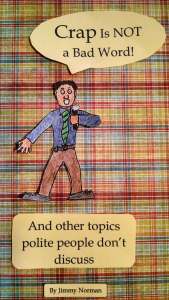Attack of the Literary Gimmicks
I get a little sensitive when it comes to gimmicks in writing.
When I was in college, I got yelled at by a writing instructor for using 2nd person present tense in a story (hey, it was a “quick write,” and he told us to experiment!!!). The rest of the students nodded their heads as he lectured me about how gimmicks like 2nd person AND present tense took away from any merit my story had.
When Bright Lights, Big City by Jay McInerney came out a few months later with a lot of critical acclaim, I wanted to storm into the writing class with it and read dramatically to show them I had been (unintentionally) a trend setter (“trend” might be a bit strong), but it was a new semester, and all the students had different classes and we would never see each other again.
It was probably for the best. I didn’t like Bright Lights, Big City. All it did was prove that my writing instructor had been correct.
*****
A Visit from the Goon Squad triggered this memory because I just finished reading it, and it uses a lot of (what I think of as) gimmicks. Normally, if I begin a novel that relies on a gimmick, I get annoyed and toss it aside. However, A Visit from the Goon Squad is the most recent novel to win a Pulitzer Prize for fiction, so its use of literary gimmicks is worth looking at.
Gimmicks are pretty common in some critically acclaimed fiction. Ulysses had stream-of-consciousness multiplied by infinity. The Shipping News had choppy sentences and fragments. Slaughterhouse-Five had “So it goes.” Holden Caulfield whines like hell in The Catcher in the Rye (or says …”like hell” a lot). When I think of these novels (I’m sure there are others, but I’m typing furiously and am probably missing something obvious), that’s what I think about, the gimmicks. The novels might have been great even without the gimmicks, and the gimmicks aren’t necessarily bad, but the gimmicks are what I think about.
A Visit from the Goon Squad doesn’t use just one or two gimmicks. It uses a bunch:
1. Telling the story out of order.
2. Switching points of view (3rd to 1st to 3rd…)
3. Switching tenses (past to present to past…)
4. power point/ flow charts (don’t use an e-reader for this book)
5. lots of stream-of-consciousness
6. And the worst gimmick ever… 2nd person present tense!
That’s a lot of literary gimmicks for one book. There were so many literary gimmicks, I expected the author to resort to the 1st person present tense narration death scene. I was wrong. Instead, she used the 2nd person present tense narration death scene. I hate being wrong.
Having so many literary gimmicks in one novel makes it look (to me) like the author is trying too hard. My writing instructor might have declared that using all these gimmicks took away from any merits A Visit from the Goon Squad had as a story. But he probably would have shut up once he realized the novel won a Pulitzer Prize for fiction.
If I had been the author of A Visit from the Goon Squad and my editor had told me to choose two literary gimmicks (instead of six), I would have chosen the charts and the out of sequence storytelling (and kept everything in third person point of view, past tense). I don’t mind novels where the events are out of order. And I like power points. I just don’t care for the presenter who reads the power point word for word to the audience and then says, “Um, okay?” after each screen.
Years from now when I look back on A Visit from the Goon Squad, I think I’m going to remember the gimmicks more than the content.
*****
A Visit from the Goon Squad by Jennifer Egan (This is my original review before it got out of control.)
This is a very uneven novel. Chapter 8 “Selling The General” might be the best 20 pages I’ve read in a really long time. Then there’s a wretched 2nd person present tense chapter (“Out of Body”) that made me cringe (because I thought it was predictable with overdone stream-of-consciousness). If the literary gimmicks thing doesn’t bother you, then you’ll probably appreciate this novel.
I’m not wild about literary gimmicks (except for parentheses), but I still really liked several sections of this book.
I think Pulitzer Prize judges don’t mind the literary gimmicks.
*****
It’s weird how seemingly minor events can change a person. If I hadn’t been chewed out by my college writing instructor, I might not be so sensitive about literary gimmicks, and I might enjoy literary fiction more. But instead, he inadvertently turned me to the dark side, and my dysfunctional literacy (which had always been a part of me) grew stronger. If not for that writing instructor, I might have turned into the kind of person who could read Ulysses and take the time to savor each phrase and appreciate every observation that James Joyce made. Instead, I count days until football season begins.
*****
The above article “Attack of the Literary Gimmicks” was written by the author of the two fine ebooks below!!
Now only 99 cents each on the Amazon Kindle!





I, too, dig parenthesis; however, I prefer semi-colons– and dashes!– when possible. Just posted a diatribe about it on Friday (http://hannahtool.com/2012/06/22/always-the-elephant/). But you make a fantastic point(s)! “Gotta Getta Gimmick” should be reserved for Broadway. Literature has kind of undergone enough dismantling in the past century.
I didn’t know what “Gotta Getta Gimmick” was and had to look it up (I hate to admit that). I’m not much into Broadway or Bette Midler, but that was pretty funny. I probably need to use more dashes too.
“Gotta Getta Gimmick” fits nicely with my greatest gimmick: alliteration.
Alliteration is awesome. Maybe A Visit from the Goon Squad could have had a chapter of extreme alliteration instead of a 2nd person present tense death scene.
OMG, I no wut u mean! Tx for the revu…now I don’t have to read AVFTGS…
Ha! I don’t think I could make it in Jennifer Egan’s version of the future because I have to spell everything out. Even when I had to hit a number three or four times to get to a letter, I spelled everything out. Kids would laugh at me. I still spell out laughter (Ha! makes more sense to me than LOL).
I literally couldn’t agree with you more. The flow chart chapter was genius, but the whole 2nd person thing was disastrous. I love the different points of view, but I think she wasted it – the brilliant thing about swapping points of view is surely to see what characters think of each other, and what they’re really like. She didn’t do this – she just introduced new characters. But then I’m not the Pulitzer Prize, so what the hell do I know? 🙂
I don’t know what I know either (partly because I haven’t read much Pulitzer Prize winning fiction), but I’d think a 2nd person present tense death scene would eliminate a book from a Pulitzer (but that might be my college experience talking).
I’ve read A Visit From the Goon Squad and I have to admit I really enjoyed it, particularly the chapter set on safari – that was really, really good. Having said that, the PowerPoint thing was the most irritating piece of ‘writing’ I have ever read, and the messaging thing at the end was pretty annoying two. A warning then to any potential readers: read the book but stop before the last two chapters!
I agree with you about the safari chapter. I think it’s interesting that the stuff that annoyed me didn’t annoy you, and the stuff that annoyed you didn’t annoy me.
I also completely enjoyed Goon Squad, though I could see how it might seem gimmicky. For me, though, it’s only a gimmick if there isn’t a solid reason to use a particular technique, and I think Egan pulled it off beautifully. The whole book is about time, memory, and all the ways we communicate–or mostly fail to communicate–with everyone around us. With that in mind, it made perfect sense to use all kinds of narrative devices. I liked how it created something that was in-between a story collection and a novel, like a new format altogether that reflected exactly where we are today: not a grand narrative but a loosely-knit (inter)web of smaller stories and of people who kind of know each other but really don’t.
Under normal circumstances, an analysis like yours would cause me to change my mind (or at least reconsider my opinion), but I… I… I… just can’t get past second person present tense death scene. I can’t let it go.
I think you need to be a very good writer to get away with that many gimmicks, although some people might mistake gimmicks for good writing. I’m reading Blindness by Jose Saramago and I find his lack of quotation marks to be a bit hard to follow sometimes. But he also won a Nobel Prize, so I guess we can overlook it.
No quotation marks? I might have to look at it (just a few pages) just to see how confusing it is (to me).